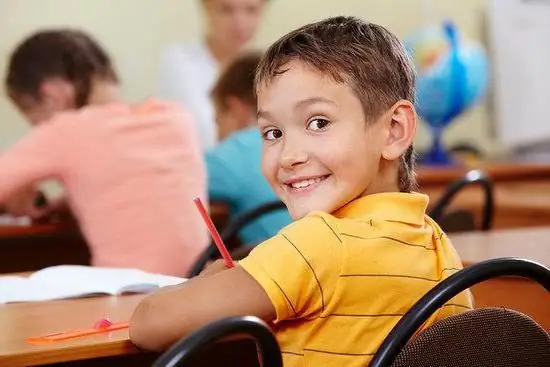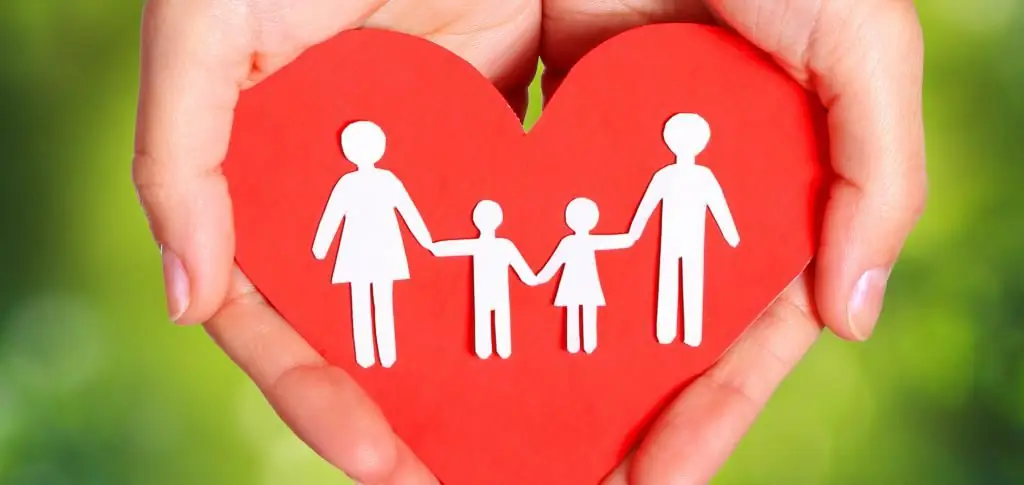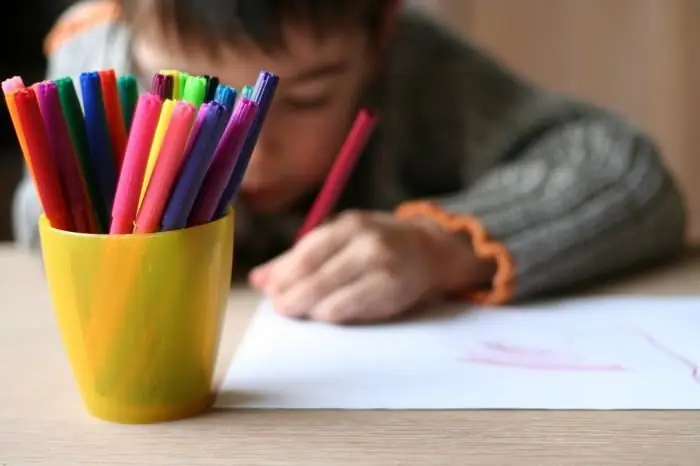2026 Author: Priscilla Miln | miln@babymagazinclub.com. Last modified: 2025-01-22 17:55:16
The development of memory and attention is one of the most important moments in the upbringing of preschool children. This is much more important than the acquisition of specific skills (learning to read, count, write). And this is due to the fact that the ability to concentrate one's attention on a particular task, to notice little things and quickly memorize new information is equally useful when studying any area.

How to develop memory and attention in children? First of all, it depends on the age of the child himself. In the first years of life, babies are actively developing, and each short period of their development has its own characteristics:
- Up to 1 year. During this period, motor memory is mainly developed. That is, best of all, the baby remembers the movements that it performs. Moreover, those that were accompanied by certain emotions and / or had some result are remembered better.
- 1-2 years. The volume, as well as the strength of memorization during this period, increase. The kid begins to remember and recognize close people (in addition to parents). From a year to two, figurative memory is formed, namelythis explains why the first conscious memories of a person, as a rule, belong to this period.
- 2-4 years. A new period in the life of a little man introduces regular changes in the processes of memory development. At this age, the baby begins to memorize more complex words, he lays the foundations of logical thinking. In addition, the range of motor skills acquired and imprinted in the memory is expanding.
- 4-6 years old. A child during this period can spontaneously remember anything, but basically what is interesting to him, what causes strong and vivid emotions, is stored in memory.

How to develop memory and attention in children? There are several effective exercises for developing memory, and now we will consider the main ones:
- The first exercise is ideal for developing motor memory. Of course, the most interesting thing is if there are several participants in the game. The essence is simple: the child is blindfolded, and the adult escort becomes a “puppeteer”. His task is to hold the baby, holding his shoulders, along a certain route (for example, take 3 steps to the left, 2 back, then sit down and take 4 more steps to the right). After that, the bandage is removed from the child's eyes, and he must go through this path again.
- Speaking about how to develop memory and attention in children, one cannot help but recall another game familiar to all of us from childhood. You need to print two pictures - the “original” and its copy, on which some elements will be missing (or new ones will be present). A taskchild - find the differences between these two pictures.
- Auditory and associative memory can also be improved. There is a special exercise for this. Mom or dad says a word, like "candy". The child must describe the appearance, some properties of the object or actions that can be performed with it. In the case of a candy, these could be the words “sweet, smells good, it can be chewed or sucked.” In addition, the development of auditory memory is very well influenced by the exercise when the child repeats (tap out) the rhythm set by the adult.

Continuing the theme of how to develop memory and attention, it is worth saying that kids learn best while playing. There are a huge number of educational games. A vivid example is the labyrinths, beloved by all of us since childhood. You can draw them yourself or download them. Of no less interest are confusion games in which the child needs to determine who knits from which ball, or which road leads to which castle. When we develop memory, attention, thinking and logic, exercises in which the child needs to connect dots in a certain sequence in order to get some kind of drawing will come in handy. You can also make cards that show objects whose names sound similar (for example, a spoon and a cat, dew and a rose). The child's task is to match the matching pairs of pictures. You can buy games that develop memory and attention in a store or make it yourself.
Recommended:
How to teach children to obey? Children's psyche, relations between parents and children, difficulties in raising a child

Surely, every parent at least once thought about how to teach a child to obey the first time. Of course, there is a sense in turning to special literature, to psychologists and other specialists, if the child refuses to hear you at all, and does not fulfill even the simplest and clearest requirements, acting in a completely different way. If the baby each time begins to show his “I don’t want, I won’t”, then you can deal with this on your own, without resorting to repression and extreme measures
Identification and development of gifted children. Problems of gifted children. School for gifted children. Gifted children are

Who exactly should be considered gifted and what criteria should be followed, considering this or that child the most capable? How not to miss the talent? How to reveal the hidden potential of a child who is ahead of his peers in terms of his level of development, and how to organize work with such children?
How to draw your husband's attention to yourself: reasons for lack of attention, advice from psychologists and unusual ways to fall in love again

What to do if the husband does not pay attention to his wife? There are various thoughts that lead to sad consequences. A woman closes in herself, becomes nervous, falls into depression. It seems that the problem is only in it. How to attract his attention and not hurt his heart? How to make sure that the feelings have not cooled down? Effective and sometimes even unusual methods will help you
How to explain to a child what is possible and what is not, how children are born, who is God? Tips for Parents of Curious Children

How to explain to a child what is good and what is bad, without resorting to prohibitions? How to answer the most tricky children's questions? Useful tips for parents of curious children will help build successful communication with the child
How to improve children's memory? Games for the development of memory. Vitamins to improve memory for children

Memory is a very good helper for every person. He does not need to write down important information in a notebook, and then try to find it for a long time. All of it is stored right in his head. This function is formed from birth. It is recommended to think as early as possible about how to improve the memory of children

